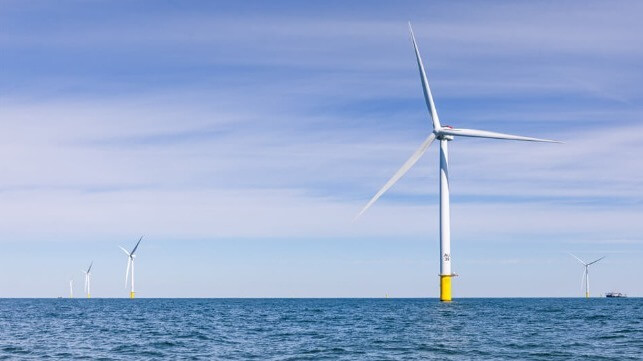BOEM Approves Eighth Offshore Wind Farm Surpassing Third of U.S. Goal

Regulatory efforts continue to accelerate pushing forward with the plans to develop the U.S. offshore wind energy sector. The U.S. Department of the Interior’s Bureau of Ocean Energy Management approved the eighth large offshore wind farm for the U.S. surpassing 10 GW of approved capacity and the ability to power nearly 4 million homes.
The federal Record of Decision was issued to Avangrid, a member of the Iberdrola Group, for its two-phase New England Wind project. The decision comes a little over a month after BOEM completed the final Environmental Impact Statement for the project. The final step in the federal process is anticipated for July 2024 with the approval of its Construction and Operations Plan.
The proposal calls for the development of a project comprising 129 wind turbines, with up to five offshore export cables. They are proposing to bring the power ashore in Barnstable and Bristol County, Massachusetts. Last week, Avangrid submitted proposals in the coordinated wind solicitation between Massachusetts, Connecticut, and Rhode Island. The states plan to announce the selected projects in August with Avangrid highlighting that New England Wind is an advanced project and “shovel-ready” set to proceed quickly once the approvals are in place.
New England Wind would be located approximately 20 nautical miles south of Martha’s Vineyard, Massachusetts, and 24 nautical miles southwest of Nantucket. The projects were previously known as Park City Wind and Commonwealth Wind but united into a single identity during the permitting process. Combined they are expected to generate up to 2.6 GW of electricity. New England 1 would border Vineyard Wind 1 which Avangrid currently has under construction.
"With the approval of the New England Wind project, we have now approved more than 10 gigawatts of offshore wind projects in under three years," highlighted Bureau of Ocean Energy Management Director Elizabeth Klein.
The bureau notes that it is making strong progress on the goal to have 30 GW of offshore wind capacity by 2030, although most analysts expect the U.S. will fall short of having that capacity operational in this decade.
Last week, BOEM also announced the Record of Decision for Ørsted’s Sunrise Wind project also to be located in the same general area as these projects. The project calls for a capacity of 924 MW with Ørsted currently working to complete a new power agreement with New York State for the wind farm.
After years of permitting and reviews, the first of the U.S. offshore wind projects are now showing progress. South Fork Wind was recently completed as the first larger offshore wind project in the U.S. powering New York state, while construction is progressing with the first five turbines energized at Vineyard Wind 1. Among the other projects, Dominion Energy is gearing up for the construction of its first wind farm off the coast of Virginia.

that matters most
Get the latest maritime news delivered to your inbox daily.
BOEM has recently announced that it was proceeding with the next phase of reviews for the Vineyard Northeast and Atlantic Shores Offshore Wind. They have also approved Empire Wind’s construction plan. They highlight that during the Biden administration, four lease auctions were conducted including the opening of the Pacific Coast off California and the Gulf of Mexico. They are also moving forward with development for the Gulf of Mexico and the Central Atlantic coast while the Treasury Department also recently issued guidance on the tax credits available to wind farm developers.
“We’ve made remarkable progress scaling up America’s offshore wind industry – with eight large-scale offshore wind projects now approved under this administration, totaling more than 10 gigawatts,” said President Biden’s National Climate Advisor Ali Zaidi. The administration touts that it has built an offshore wind industry from the ground up after years of delay from the previous administration.
